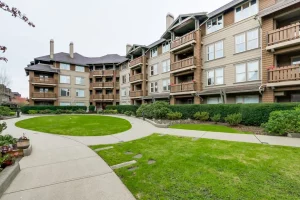The non-payment of levies by owners within a Sectional Title Scheme creates a burden on the Body Corporate or Homeowners Association’s paying members to maintain the common property. This non-payment results in amenities and municipal accounts remaining unpaid.
Homeowners are often left with no choice but to enter payment arrangements with the council and other creditors where the Body Corporate or Homeowners Association has fallen behind on these payments. The Body Corporate or Homeowners Association then uses its reserve funds to pay these shortfalls. The trouble with this solution is that the homeowners, who initially created the debt by not paying their levies, are likely to continue not to pay.
It is in the Bodies Corporate or Homeowners Association’s best interest to collect as much of these funds in as short a space as possible to ensure that they suffer as little as possible due to these defaulting homeowners.
Continuous non-payment of levies by an owner
The non-payment of levies by owners within a Sectional Title Scheme puts undue strain on the Body Corporate and Homeowners Association and causes significant financial stress. The Trustees must handle non-payment in the best interest of the entire Body Corporate or Homeowners Association. The Trustees or Directors have a responsibility to act in the best interest of all homeowners. This responsibility includes notifying the homeowners that the account is outstanding, providing them with a chance to pay, and instituting further action.
Why you should not use your reserve fund
A reserve fund is used for the 10- year maintenance plan that includes the maintenance, repair, and restoration of the complex and any emergency or any unforeseen maintenance and repair costs not included in the initial annual budget.
When transferring funds from the Reserve fund, the Trustees or Directors can do so with a Trustees or Directors resolution. The use of reserve funds needs to be authorised by and reported to members, complying with the following:
• Reasonable grounds that there is a need for immediate expenditure.
• Unforeseen need for the funds
• Necessary for the required insurance coverage
Using the reserve funds to cover costs that unpaid levies have caused puts an unnecessary strain on all owners. The reserve fund must be refunded for future emergencies.
What steps can be taken by Trustees?
There are various remedies, all of which will eventually affect the Body Corporate or Homeowners Association in some form or another.
The Trustees or Directors have the following options:
• Legal Action
• Loan
• Selling the Debt
Legal Action
Trustees or Directors need to be aware when handing over an account to attorneys for legal action and collection that it can become costly and lengthy with little to no return on the funds spent in this process. It is essential to appoint a collection attorney that is knowledgeable in the Sectional Title Industry. Only a percentage of legal costs are recoverable from the debtor. Only the taxable amount of the legal fees can be added to the debtor’s total outstanding amount payable by law.
Selling Debt
Trustees or Directors can sell the debt to Stratafin for immediate cashflow. This option will assist in alleviating the more urgent concerns as a result of the non-payment of levies. The funds received from the sale of the debt can be allocated to settle the above circumstances that were not previously able to address, such as municipal accounts and maintenance.
Contact us for an obligation-free preliminary assessment or to explore how we can help you













